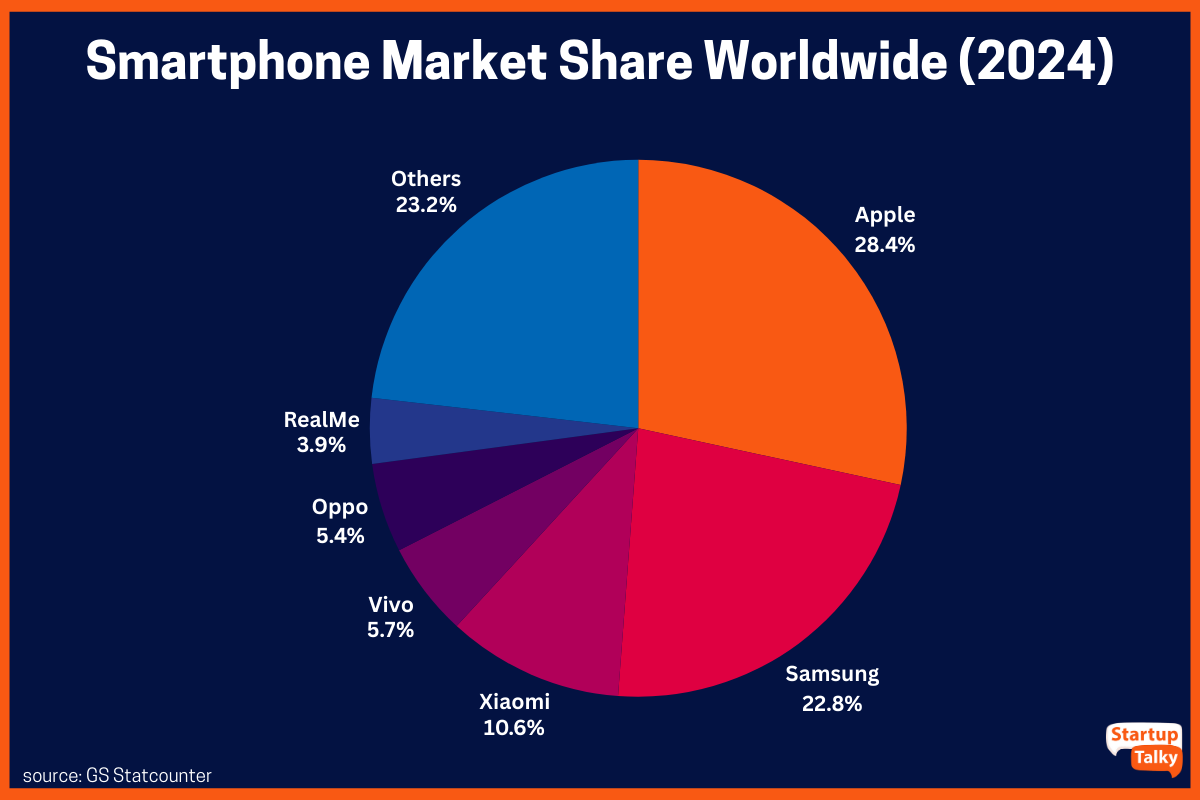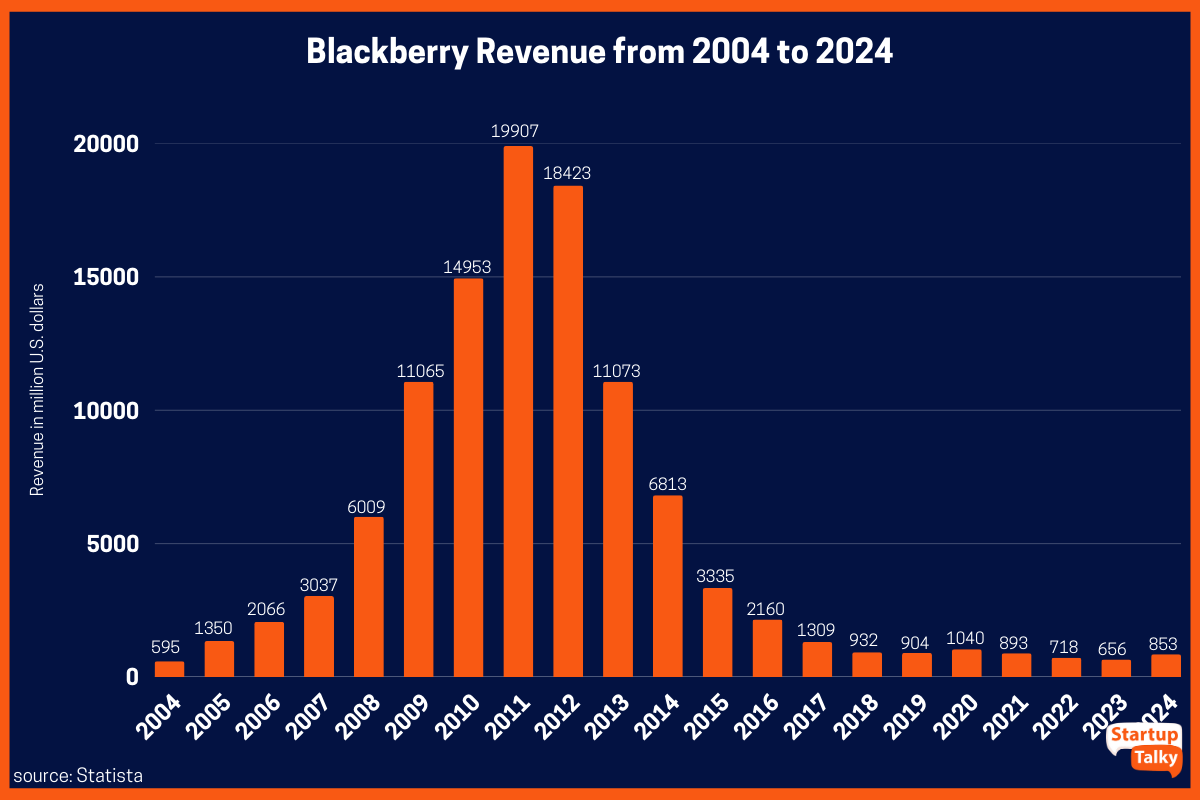The Rise and Fall of BlackBerry: A Lesson in Technological Evolution
🔍Insights
The story of BlackBerry is a cautionary tale of a once-dominant player in the smartphone industry who ultimately fell from grace. At its peak, BlackBerry was a trailblazer, pioneering on-the-go communication and email with its iconic keyboard-enabled phones. However, the company's slow adaptation to changing market trends, lack of consumer focus, and missed opportunities ultimately led to its downfall. In this article, we shall shed light on the key factors that contributed to BlackBerry's decline and examine the lessons that can be learned from its spectacular failure.
The Rise of BlackBerry
Missed Opportunities and Lack of Adaptation
The Rise of the iPhone and Android
The Failure to Innovate
The Shift to Software and Cybersecurity
Lessons Learned from BlackBerry's Downfall
The Rise of BlackBerry
BlackBerry, initially known as Research in Motion (RIM), emerged in the late 1990s and quickly gained traction in the smartphone market. The company's early success was fueled by its innovative products, such as the Interactive Pager 950, which introduced on-the-go communication and email capabilities. With its signature keyboard and secure messaging system, BlackBerry became synonymous with professionalism and efficiency.
Throughout the early 2000s, BlackBerry continued to expand its product portfolio and solidify its position in the market. The introduction of the BlackBerry Pearl series, Curve, and Bold product lines further cemented the company's success. BlackBerry's user base grew rapidly, and by 2011, it boasted more than 50 million units sold worldwide.
Missed Opportunities and Lack of Adaptation
Despite its initial success, BlackBerry failed to anticipate and adapt to key market shifts, leading to its downfall. One of the critical mistakes made by the company was its slow response to the touch-screen revolution. While competitors like Apple were going for touch-screen technology, BlackBerry remained loyal to its keyboard-enabled devices. This decision proved to be a significant misstep, as consumers increasingly gravitated towards touch-screen devices.
Furthermore, BlackBerry's lack of consumer focus played a significant role in its decline. The company primarily catered to corporate and government customers, neglecting the broader consumer market. While BlackBerry's devices offered robust security and email capabilities, they lacked the intuitive user experience and app ecosystem that consumers were seeking.

The Rise of the iPhone and Android
The introduction of the iPhone in 2007 marked a turning point in the smartphone industry. With its sleek design, touch-screen interface, and extensive app store, the iPhone changed the way people interacted with their mobile devices. BlackBerry, however, failed to recognize the iPhone as a direct competitor and continued to focus on its core business customers.
At the same time, Android smartphones began to gain traction, offering consumers a wide range of device options and customization capabilities. BlackBerry, with its limited device selection and lacklustre app store, struggled to compete with the growing popularity of iPhones and Android devices.

The Failure to Innovate
Another critical factor in BlackBerry's decline was its failure to innovate and keep up with evolving consumer demands. While BlackBerry Messenger (BBM) gained popularity as a messaging platform, the company missed the opportunity to expand its user base by locking the service exclusively to BlackBerry devices. Competitors like WhatsApp, which offered cross-platform messaging, quickly surpassed BBM in popularity and user adoption.
Additionally, BlackBerry's operating system (OS) faced significant limitations in terms of app availability and user experience. While competitors like Apple and Android devices offered a vast array of applications, BlackBerry struggled to attract developers and provide an appealing app ecosystem for its users. As a result, BlackBerry devices became increasingly outdated and less desirable to consumers.

The Shift to Software and Cybersecurity
Recognising the need for a strategic pivot, BlackBerry decided to shift its focus from hardware to software and cybersecurity. In 2016, the company ceased smartphone manufacturing and transitioned into a software firm. Today, BlackBerry specializes in providing cybersecurity solutions and software services to businesses and governments.
The shift to software has allowed BlackBerry to leverage its expertise in security and build a new business model. The company offers a range of products and services, including endpoint security, threat intelligence, and secure communication solutions. BlackBerry's cybersecurity offerings have gained traction in the market, positioning the company as a key player in the industry.

Lessons Learned from BlackBerry's Downfall
The rise and fall of BlackBerry offers valuable lessons for companies operating in the fast-paced and ever-evolving technology industry.
- Adaptability: First and foremost, adaptability is crucial. Companies must be willing to embrace change and respond to shifting market dynamics. BlackBerry's failure to recognise the significance of touch-screen technology and adapt its devices accordingly proved to be a fatal mistake.
- Consumer Focus: Consumer focus is essential for long-term success. While BlackBerry initially targeted corporate and government customers, it failed to recognise the growing importance of the consumer market. Companies must understand the needs and preferences of their target audience and prioritise delivering a compelling user experience.
- Innovation: Furthermore, innovation is key to staying competitive. BlackBerry's reluctance to innovate and introduce new features and functionalities limited its ability to attract and retain customers. In today's fast-paced technology landscape, companies must continuously innovate and evolve to meet the ever-changing demands of consumers.
- Strategic Pivots: Strategic pivots can be necessary for survival. BlackBerry's decision to shift its focus from hardware to software and cybersecurity allowed the company to capitalize on its strengths and remain relevant in the industry. Companies must be willing to reassess their business models and make bold decisions to adapt to changing market conditions.
- Leadership and Vision: Strong leadership is crucial during times of disruption. Leaders must not only have a clear vision but also the foresight to anticipate market trends and the agility to pivot quickly. Without strategic leadership, even well-established companies can lose their edge.

Conclusion
The rise and fall of BlackBerry serve as a powerful reminder of the importance of adaptability, consumer focus, innovation, and strategic pivots in the technology industry. While BlackBerry's dominance in the smartphone market may be a thing of the past, the company's transformation into a software and cybersecurity provider demonstrates its resilience and ability to evolve.
The lessons learned from BlackBerry failure can guide other companies in overcoming the challenges and opportunities presented by technological advancements. By inculcating change, understanding customer needs, pushing for innovation, and making strategic shifts when necessary, companies can position themselves for long-term success in an ever-changing market.
FAQs
Why Blackberry failed?
BlackBerry failed because its leaders were slow to adopt touchscreen phones and app-based innovation, falling behind as the smartphone industry rapidly evolved.
They underestimated the impact of competitors like Apple and Android.
Their reluctance to change cost them market share and relevance.
What is the main reason for Blackberry phone failure?
The main reason for BlackBerry's phone failure was its delay in adopting touchscreen technology and app ecosystems. While the market shifted toward full-screen smartphones and rich app experiences, BlackBerry stuck to physical keyboards and outdated software, losing relevance to faster-moving competitors like Apple and Android.
What went wrong with Blackberry?
BlackBerry went wrong by failing to adapt to major shifts in the smartphone industry. It:
- Ignored the rising demand for touchscreen phones
- Underestimated the importance of app ecosystems
- Continued focusing on physical keyboards and enterprise users while the market moved toward consumers
- Reacted too slowly to competition from Apple and Android
This lack of innovation and poor timing led to its sharp decline.
Must have tools for startups - Recommended by StartupTalky
- Convert Visitors into Leads- SeizeLead
- Website Builder SquareSpace
- Run your business Smoothly Systeme.io
- Stock Images Shutterstock






